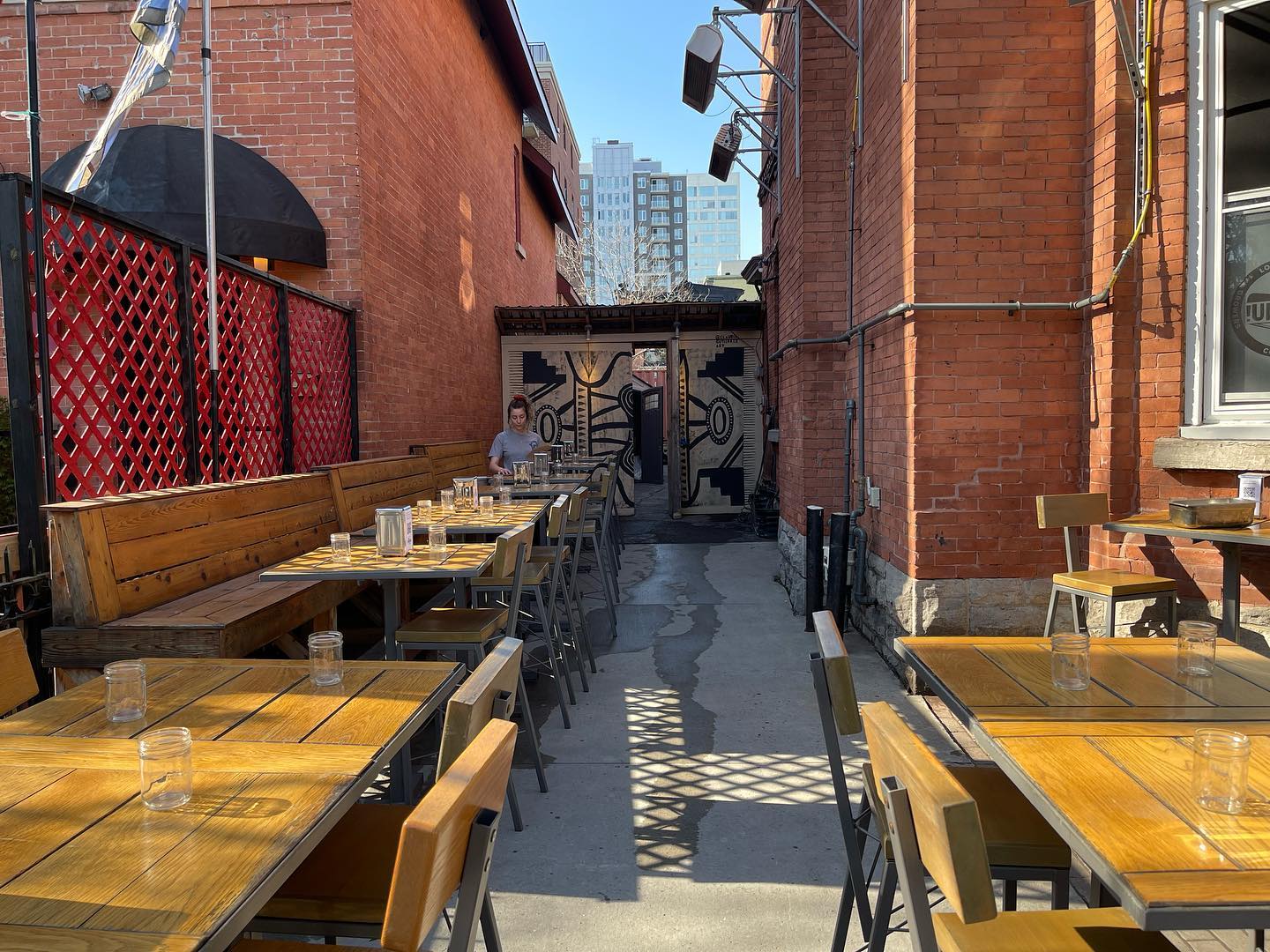Just like the weather, it’s been an up-and-down start to the season for many of Ottawa’s outdoor patios.
Andre Schad, owner of the Tavern Group of restaurants, relies on warm weather. The Tavern Group includes Tavern on the Hill, Tavern on the Falls and Tavern at the Gallery, all known for sunny outdoor patios overlooking some of the city’s best views.
The Taverns are in “full swing” on warm days, said Schad, but the weather “hasn’t been co-operating the way we’d like” so far this season.
(Sponsored)

SnowBall 2026: A premier networking event with purpose returns to 50 Sussex Dr.
As winter settles in across the capital, one of Ottawa’s most high-profile charitable and business networking events is set to return to its roots: On Wed., March 4, 2026, The

How shared goals at Tamarack Ottawa Race Weekend strengthen workplace culture
Across workplaces of all sizes and sectors, organizations are continuing to look for meaningful ways to bring people together. Team connection, employee well-being, and community impact are no longer separate
“When the sun’s out, we’re very busy, but it’s a hit or miss so far,” he explained. “We’ve only had about nine days of nice weather so far, but they’ve been comparable to last year (in terms of business).”
Staffing has been a “real challenge” for the Taverns, he added. The Tavern on the Hill, which overlooks Major’s Hill Park, is temporarily closed for construction, so the “silver lining” is that Schad has been able to reallocate his staff to his other patios.
Restaurants across Canada are being slammed with a daunting mix of soaring costs, staffing issues and capacity problems, making a slow start to the critical summer patio season a near crisis for some eateries across the country, industry observers say.
Many restaurants are struggling with the ballooning price of food, rent, utilities, labour and insurance, with many of the higher costs being absorbed for fear of losing customers if menu prices rise too quickly, experts note.
Ivan Gedz, owner of Union Local 613 on Somerset Street West, said there’s “absolutely” more pressure on this year’s patio season than previous years, as he hopes to “compensate” for rising costs and staffing issues.
“Based on the current economic situation, there’s a lot of gambling and hope that this season will improve,” Gedz said.
Pressures are exacerbated “massively” by staffing challenges, he added. Like many restaurants he knows, Gedz said, he is “constantly” trying to fill back-of-house positions, like line cooks.
“With staffing shortages, Mother’s Day was the first brunch we’ve been open,” he said. “Not because we didn’t want to, but because we didn’t have the staff.
“If you’re not open you can’t generate that revenue, but you’re scared to be open because there is lots of burnout with the staff we do have … Almost every one of our staff members was working overtime.”
Gedz said he is seeing the effects of rising costs in a few ways.
“It’s not just increased costs of the goods we’re putting in products or raising our prices as well, it’s also pressure that families are having in terms of, are they going to a restaurant, or are they making meals at home because they can’t afford to go out as much as they’d like to?”
Gedz doesn’t see eating out at restaurants as high on the priority list for people on a budget.

“Restaurants are not seen in the same indulgence as travel,” he explained. “People can let it go by the wayside so they can take that summer vacation.”
Despite opening the patio earlier than usual, gross sales numbers are still down 30 per cent compared to pre-pandemic, Gedz said, agreeing that this summer could be a “make-it-or-break-it” situation for many eateries like his.
The erosion of restaurant profit margins has left little to repay COVID-19 government loans, restaurant advocates say. The situation has prompted multiple business groups to call on the federal government to extend the looming deadline to repay the Canada Emergency Business Account (CEBA) loans.
The loans must be repaid in full by Dec. 31 or a forgivable portion is converted to a loan, and interest will begin to accrue on the full amount — as much as $60,000, Restaurants Canada says.
The government had previously extended the deadline for the interest-free, partially forgivable loans by one year. After Dec. 31, outstanding loans will be converted to two-year term loans with five per cent interest.
Bankruptcy figures from Restaurants Canada shed light on a troubling trend the industry group warns could worsen without a strong summer season, an easing up of runaway food costs and a delay of loan repayments.
In the first two months of 2023, 106 restaurants went bankrupt, up 116 per cent from 49 restaurants in the first two months of last year and up 18 per cent compared with 90 restaurants in 2019.
Even restaurants with revenues that have rebounded strongly are struggling with slimmer profit margins, according to restaurant advocates.
Restaurant menu prices rose 6.4 per cent last month compared with a year earlier, while grocery prices jumped 9.1 per cent year over year, Statistics Canada said this week.
“The patio has been fleeting at best so far. This is the fastest we’ve ever opened the patio, but we are still facing the return from restrictions and are still down from our pre-pandemic gross numbers,” said Gedz. “My hope is that this summer season might compensate a bit.”
With files from The Canadian Press






